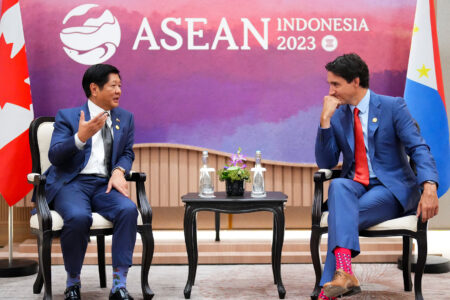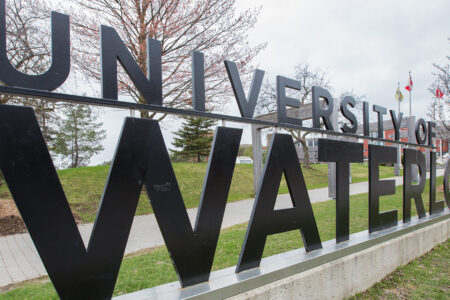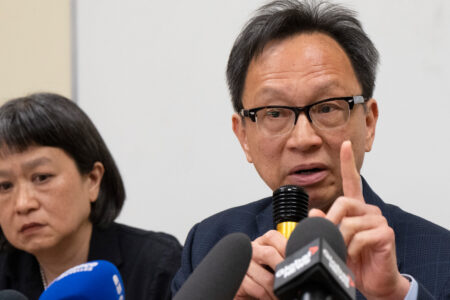
The rise of China as a great power and the establishment of China as Canada’s second-largest trading partner and a leading source of investment into this country pose particular human resources challenges for Global Affairs Canada (formerly the Department of Foreign Affairs, Trade and Development). The business of diplomacy rightly places a premium on experience, but with slow turnover of personnel and limited new hires due to budget constraints, adapting the department’s workforce to an era when China will exercise a powerful influence on international affairs is a difficult challenge.
In 1970, the year that Canada recognized the People’s Republic of China (PRC), the Asian country was still in the throes of the Cultural Revolution, our trade was minimal and we had not yet set up a mission in Beijing. Forty-six years later, Canada has one of its largest missions in Beijing, along with consulates general in Hong Kong, Shanghai, Guangzhou and Chongqing as well as a mission in Taipei. Global Affairs simultaneously needs a deep bench of China experience back in Ottawa, particularly in a time when modern communications has made management of a bilateral relationship at a distance far easier.
But China expertise takes time to accumulate. Relatively few of the current senior managers and policy-makers in Ottawa have extensive China experience. Much of the department’s Ottawa-based China knowledge is concentrated in the North Asia Bureau of Global Affairs. China experts in the trade policy, security, consular and other key policy and operational sectors are increasing in numbers, reflecting the size and number of Canada’s China missions. But their numbers are not sufficient to meet the demand as Canada contemplates a free trade agreement with China and as China’s trade and investment profile in this country rises.
The new government of Canada has clearly identified China as a priority partner, but there is no quick fix for generating China competency, even with additional funding. There are signals from senior departmental officials that funding is being made available to increase the numbers of officers focused on China affairs. However, there are challenges that must be met before human resources plans become reality.
The lag time before new recruits are ready for assignment to a China mission can be over four years from the date of entry.
First, while it is possible to ramp up the hiring of new personnel for training in the Chinese language, the hiring process can easily take a full year from when candidates take the federal government’s entrance examination until their applications have been approved and security clearances issued by the Canadian Security Intelligence Service (CSIS). Once the new recruits have been accepted, they normally require both training and early work experience at the Global Affairs headquarters before being assigned to language training. The federal government’s language training program is generally a 24-month course. With many recruits also requiring training in one of Canada’s official languages, the lag time before new recruits are ready for assignment to a China mission can be over four years from the date of entry.
My own Chinese-language training in the Canadian foreign service, in the early 1980s, took two years at the Chinese University of Hong Kong, a good place to learn Chinese but an even better place to become familiar with China at a time when studying in the PRC was problematic for Canadian officials. Today, with the number of officers requiring Chinese-language training, the cost of two years of language training overseas would be prohibitive.
Fortunately, a modest number of new recruits are joining the federal public service with various levels of Mandarin that they have acquired through earlier schooling. Those with fluency in Mandarin and in a handful of other priority foreign languages are accorded priority in the selection process. This can shorten the time between recruitment and a posting to China by up to two years.
Today, 1.5 million Canadians of Chinese origin represent a valuable latent asset to the department in understanding China. A significant number of Canadians of Chinese heritage now occupy increasingly senior positions in our China missions, and many of them have entered the foreign service with varying degrees of Chinese-language capacity.
Today, 1.5 million Canadians of Chinese origin represent a valuable latent asset to the department in understanding China.
But being Chinese-Canadian does not mean that people have an up-to-date understanding of China or the other skills required. Also, the security vetting process, which requires CSIS to be confident that each person will always place loyalty to Canada above any attachment to a foreign country, means that it is by no means a certainty that Canadians who have spent most of their formative years in China will receive top secret clearance. Divided loyalties might well become an issue when officials must negotiate in favour of Canada in tough discussions with their Chinese counterparts.
As well, assigning newly arrived immigrants from any country to their ancestral home, where they will still have close family members and other associations, may place them in a conflict of interest or even, in the case of China, expose them to pressure from security authorities. The ideal China officer will have a deep understanding and curiosity about China but will also never lose sight of the primacy of Canada’s interests, even when they are at odds with China’s interests.
The loyalty issue is less of a concern for people of Chinese origin who have grown up in Canada and view Canada, not China, as their home. With sustained immigration from China to Canada, the number of second- and third-generation Canadians who can be potential foreign service officers in our China missions will increase. On the other hand, subsequent generations of potential recruits from the Chinese-Canadian community may not have the advantage of superior Chinese-language skills or deep cultural understanding of the rapidly evolving Chinese scene.
A residual challenge from the past is that many young and enthusiastic officers who were assigned to one of our China postings and who were supposed to have stayed for only two or three years have wound up filling multiple consecutive postings in China. This can be a positive outcome for both the individual and the mission manager, but it leads to succession planning problems. The normal recruitment and training of other officers to relieve those posted in China doesn’t occur, and the pool of senior people with China experience gets smaller. The net effect of these factors is that fewer people in the upper management of Global Affairs will possess a deep understanding of China. A further challenge is that the most senior officers in the department have been generalists, and a deep specialty in a region has not been the surest path to promotion to senior ranks, although there are exceptions.
While there is no substitute for the development and maintenance of a core of Chinese-speaking officers who know China well within Global Affairs, there will never be enough China experts to manage all the interactions with the emerging superpower. A significant portion of the department’s employees should be given courses to increase their understanding of China. However, budget cuts to the department’s Canadian Foreign Service Institute would have to be reversed if China-specific training is to be made available to a significant number of employees.
The recruitment challenges aren’t limited to Global Affairs. Other federal departments, from Finance to National Defence, are responsible for selecting and posting people to Canadian missions abroad. At the RCMP or National Defence, those posted abroad will almost certainly be serving officers in their departments who may not have any prior China experience but have acquired expertise in the work of their departments. They will not be China “generalists”; they will be subject experts. Many federal departments also now need to be aware of what China is doing in their sectors, given the global impact of China. An example would be Environment and Climate Change Canada, where China’s greenhouse gas production as well as its climate change policies must be taken into account by federal officials.
The skills gap on China is not limited to Canadian governments. Corporate Canada as well as NGOs, universities and think tanks would benefit from staff who can “decode” China, rather than simply hiring local translators and facilitators. The impressive development of English-language skills in the Chinese population and China’s familiarity with the outside world make it much easier for foreigners to interact with China without knowing the language or culture. But to accept a situation where Chinese officials know our languages and customs far better than we know theirs is short-sighted and does not serve long-term Canadian interests.
Photo: Wikimedia commons
This article is part of the Canada-China Relations Special Feature.
Do you have something to say about the article you just read? Be part of the Policy Options discussion, and send in your own submission. Here is a link on how to do it. | Souhaitez-vous réagir à cet article ? Joignez-vous aux débats d’Options politiques et soumettez-nous votre texte en suivant ces directives.







